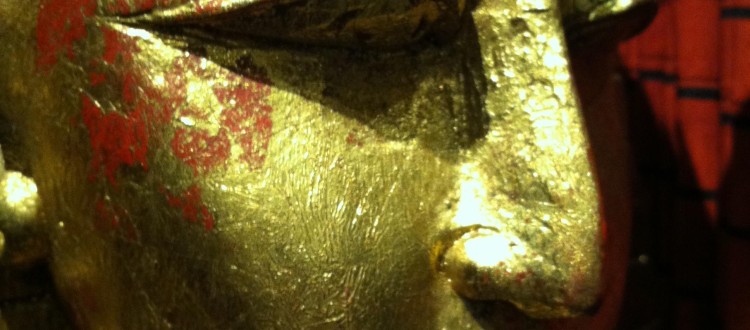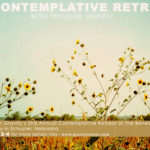Have you been self-abnegating?
Awakening :: Week 9
Waking up allowed me to surrender to the removal of masks of fear, inferiority and subordination. I was coming out from hiding and breaking free of that which kept me from being fully awake, fully alive. Some of what I needed to be liberated from was familial, cultural and religious paradigms of what it means to be a woman. I began realizing just how much I was living my life for other people rather than for who God made me to be. I was realizing how much I put everyone else first like a good self-denying Christian, only to discover how in some of those ways I was hiding and pretending that I didn’t have needs and dreams. The easier, broader way was to hide behind selfless deeds rather than to live up to my potential to influence and to create change, to heal and to lead.
Theologians Reinhold Niebuhr and Carol Lakey Hess help me understand this notion of hiding as the sin of self-abnegation, the cousin sin of pride.1 According to a number of theologians, the sin of self-abnegation is widely overlooked in Christian teaching, yet it has as devastating effects on people and society as does the sin of pride.
Niebuhr suggested that sin takes on two primary expressions. The first is “the unwillingness of [humanity] to acknowledge [their] creatureliness and dependence upon God and [their] effort to make [their] own life independent and secure,” which is commonly understood as pride.2 The alternative form of sin is sensuality (doing what feels good), evasion of self or self-abnegation. Unfortunately, Niebuhr underdeveloped this side and focused most of his work on the first expression of sin. Both expressions are effectively a form of denial. Pride is the denial of one’s need to depend on God; self-abnegation is the knowledge of the need but refusal to depend on God. Pride can be associated with a superiority complex; self-abnegation can be associated with an inferiority complex. Both prevent us from living into the fullness of who God created us to be.
Reflection
- Take a moment to examine your life. Do you identify more with the sin of pride or self-abnegation (as defined here)?
- In what ways have you been hiding?
- Can you identify any desires you have that would bring you out from hiding?
- If you identify more with the sin of pride (denying your need to depend on God) take a moment to confess and ask for God’s grace to help you acknowledge your need for God.
- If you identify more with the sin of self-abnegation (knowing your need for God but refusing to depend on God), acknowledge what is keeping you from depending on God (fear, distrust, stubbornness, etc.) and ask for God’s grace to help you step into areas of your life that will require deeper trust and dependency on God.
1 Reinhold Niebuhr was a leading American Protestant theologian of the 20th century. He is credited with writing the Serenity Prayer. Carol Lakey Hess is a practical theologian and author of Caretakers of Our Common House: Women’s Development in Communities of Faith. In her book, Hess says that few theologians have influenced North American theology as significantly as Niebuhr. She says that his theological anthropology both looked to historical key thinkers and themes in the Protestant tradition and projected forward a highly influential thought for Christian theology. And she remarks that his thought has raised critical questions for women. Carol Lakey Hess, Caretakers of Our Common House: Women’s Development in Communities of Faith (Nashville: Abingdon, 1997), p. 33.
2 Reinhold Niebuhr, The Nature and Destiny of Man, Vol. 1: Human Nature (New York: Scribner’s Sons, 1941), pp. 137-38.
photo credit :: MGDboston at morgueFile.com, GraphicArtServices.com




